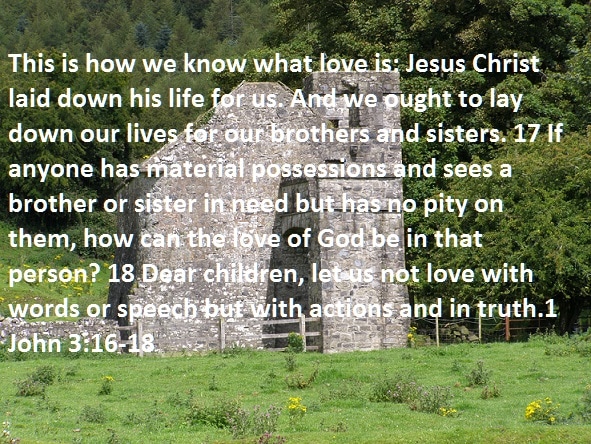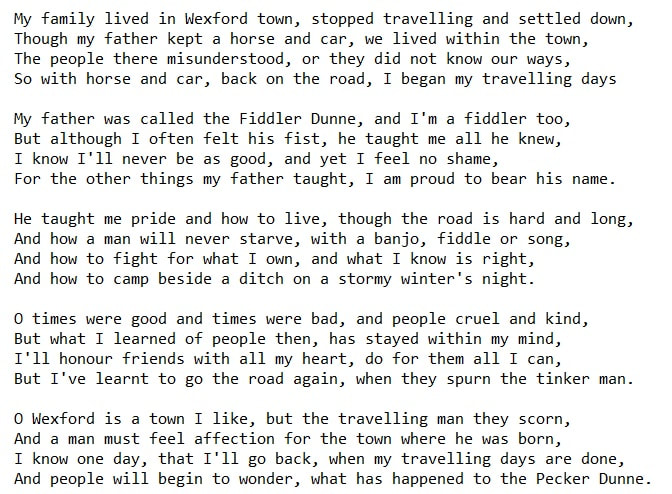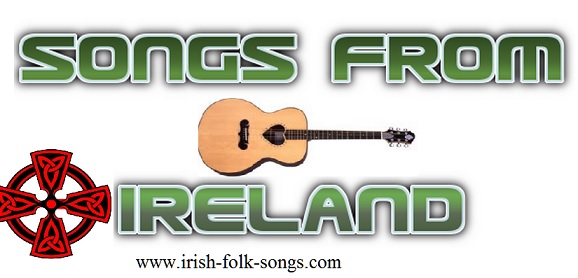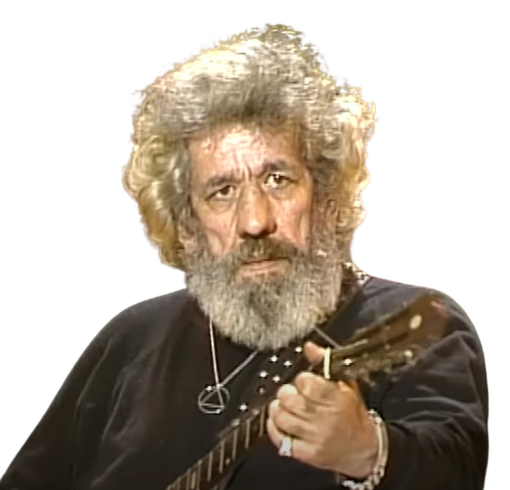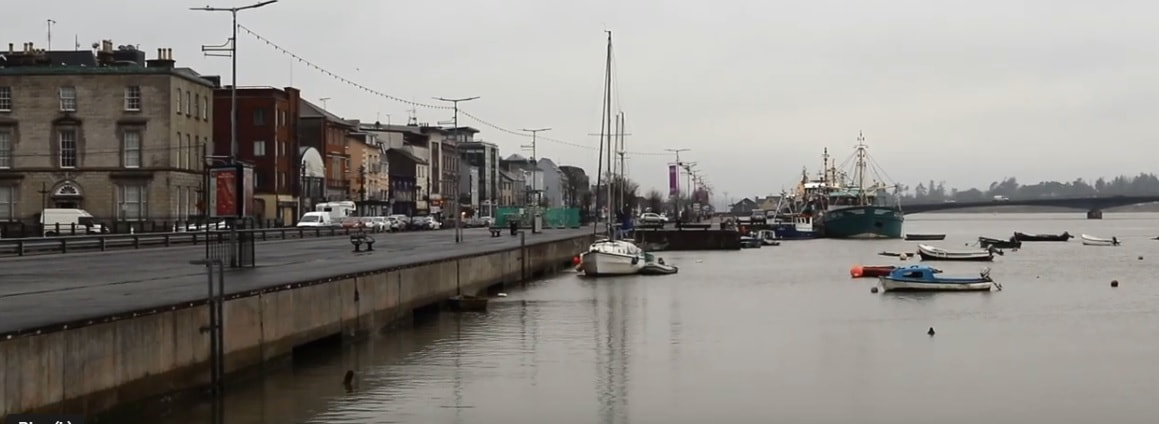Wexford Town lyrics and chords
Recently recorded by The Mary Wallopers. Written and recorded by ''The Pecker Dunne'', who wrote O'Sullivan's John song also. to change key, C=D, F=G, Am=Bm, the air of this song is the same as ''Tramps And Hawkers'' [ lyrics ] and same as ''Come My Little Son' and ''The Song With No Name''. An Irish folk song.
My[C] family lived in [F]Wexford town, stopped travelling and [C]settled down,
Though[C] my father kept a[F] horse and car, we [C]lived within the [Am]town,
The [C]people there mis[F]understood, or [C]they did not know our [Am]ways,
So with[C] horse and car, back [F]on the road, I began my travelling [C]days
My father was called the Fiddler Dunne, and I'm a fiddler too,
But although I often felt his fist, he taught me all he knew,
I know I'll never be as good, and yet I feel no shame,
For the other things my father taught, I am proud to bear his name.
He taught me pride and how to live, though the road is hard and long,
And how a man will never starve, with a banjo, fiddle or song,
And how to fight for what I own, and what I know is right,
And how to camp beside a ditch on a stormy winter's night.
O times were good and times were bad, and people cruel and kind,
But what I learned of people then, has stayed within my mind,
I'll honour friends with all my heart, do for them all I can,
But I've learnt to go the road again, when they spurn the tinker man.
O Wexford is a town I like, but the travelling man they scorn,
And a man must feel affection for the town where he was born,
I know one day, that I'll go back, when my travelling days are done,
And people will begin to wonder, what has happened to the Pecker Dunne.
Though[C] my father kept a[F] horse and car, we [C]lived within the [Am]town,
The [C]people there mis[F]understood, or [C]they did not know our [Am]ways,
So with[C] horse and car, back [F]on the road, I began my travelling [C]days
My father was called the Fiddler Dunne, and I'm a fiddler too,
But although I often felt his fist, he taught me all he knew,
I know I'll never be as good, and yet I feel no shame,
For the other things my father taught, I am proud to bear his name.
He taught me pride and how to live, though the road is hard and long,
And how a man will never starve, with a banjo, fiddle or song,
And how to fight for what I own, and what I know is right,
And how to camp beside a ditch on a stormy winter's night.
O times were good and times were bad, and people cruel and kind,
But what I learned of people then, has stayed within my mind,
I'll honour friends with all my heart, do for them all I can,
But I've learnt to go the road again, when they spurn the tinker man.
O Wexford is a town I like, but the travelling man they scorn,
And a man must feel affection for the town where he was born,
I know one day, that I'll go back, when my travelling days are done,
And people will begin to wonder, what has happened to the Pecker Dunne.
Here are the chords in the key of G
My[G] family lived in [C]Wexford town, stopped travelling and [G]settled down, Though[G] my father kept a[C] horse and car, we [G]lived within the [Em]town, The [G]people there mis[C]understood, or [G]they did not know our [Em]ways, So with[G] horse and car, back [C]on the road, I began my travelling [G]days
My[G] family lived in [C]Wexford town, stopped travelling and [G]settled down, Though[G] my father kept a[C] horse and car, we [G]lived within the [Em]town, The [G]people there mis[C]understood, or [G]they did not know our [Em]ways, So with[G] horse and car, back [C]on the road, I began my travelling [G]days
Traditional Irish music is a genre that has been passed down for generations, rooted deeply in the culture and history of Ireland. It is a form of music that celebrates the stories, struggles, and triumphs of the Irish people, and has been preserved and promoted by musicians such as Pecker Dunne.
Born in 1933 in the small town of Rathnew, County Wicklow, Ireland, Pecker Dunne was a prominent figure in the world of traditional Irish music. His musical journey began at a young age when he learned to play the tin whistle from his father, who was also a musician. He later mastered the banjo, guitar, and bodhrán, all of which would become essential instruments in traditional Irish music.
Dunne's music was heavily influenced by the traditional Irish music scene of the 1950s and 60s, which was undergoing a revival at the time. This revival was a result of a renewed interest in preserving and promoting traditional Irish music, which had been declining in popularity due to the introduction of modern styles and instruments.
Dunne's contribution to this revival was significant, as he not only played traditional Irish music but also wrote and composed his own songs, incorporating elements of his own life experiences and the culture of Ireland. His songs were often humorous and witty, but also had deep meaning and reflected the struggles and joys of the Irish people.
One of Dunne's most famous songs, 'The Travelling People,' is a prime example of his ability to capture the essence of Irish culture and heritage through music. The song tells the story of the nomadic lifestyle of the Irish Travellers, who faced discrimination and prejudice from the settled community. Through his lyrics and music, Dunne sheds light on the struggles and resilience of this marginalized group, while also showcasing their unique customs and way of life.
Apart from his original compositions, Dunne was also a master interpreter of traditional Irish songs and tunes. He had a deep understanding and appreciation for the rich history and meaning behind each song and was able to convey this to his audience through his performances. His renditions of songs such as 'The West's Awake' and 'The Rocky Road to Dublin' have become iconic in the world of traditional Irish music.
Dunne's contribution to the preservation and promotion of traditional Irish music extended beyond his own performances. He was a mentor and teacher to many young musicians, passing down his knowledge and skills to the next generation. He also played a significant role in the organization of traditional music festivals and events, providing a platform for other musicians to showcase their talents and keep the tradition alive.
Through his music and efforts, Pecker Dunne became a beloved figure in the world of traditional Irish music. He was awarded the prestigious 'Bard of Rathnew' title by the local community, recognizing his contributions to the preservation of Irish culture and heritage. His influence and legacy continue to live on through the many musicians he inspired and the songs he left behind.
In conclusion, Pecker Dunne's impact on traditional Irish music cannot be overstated. He was a true ambassador of the genre, using his talents to preserve and promote a culture that is deeply ingrained in the hearts and souls of the Irish people. Through his music, he immortalized the stories and struggles of his people, leaving behind a legacy that will continue to be cherished for generations to come.
